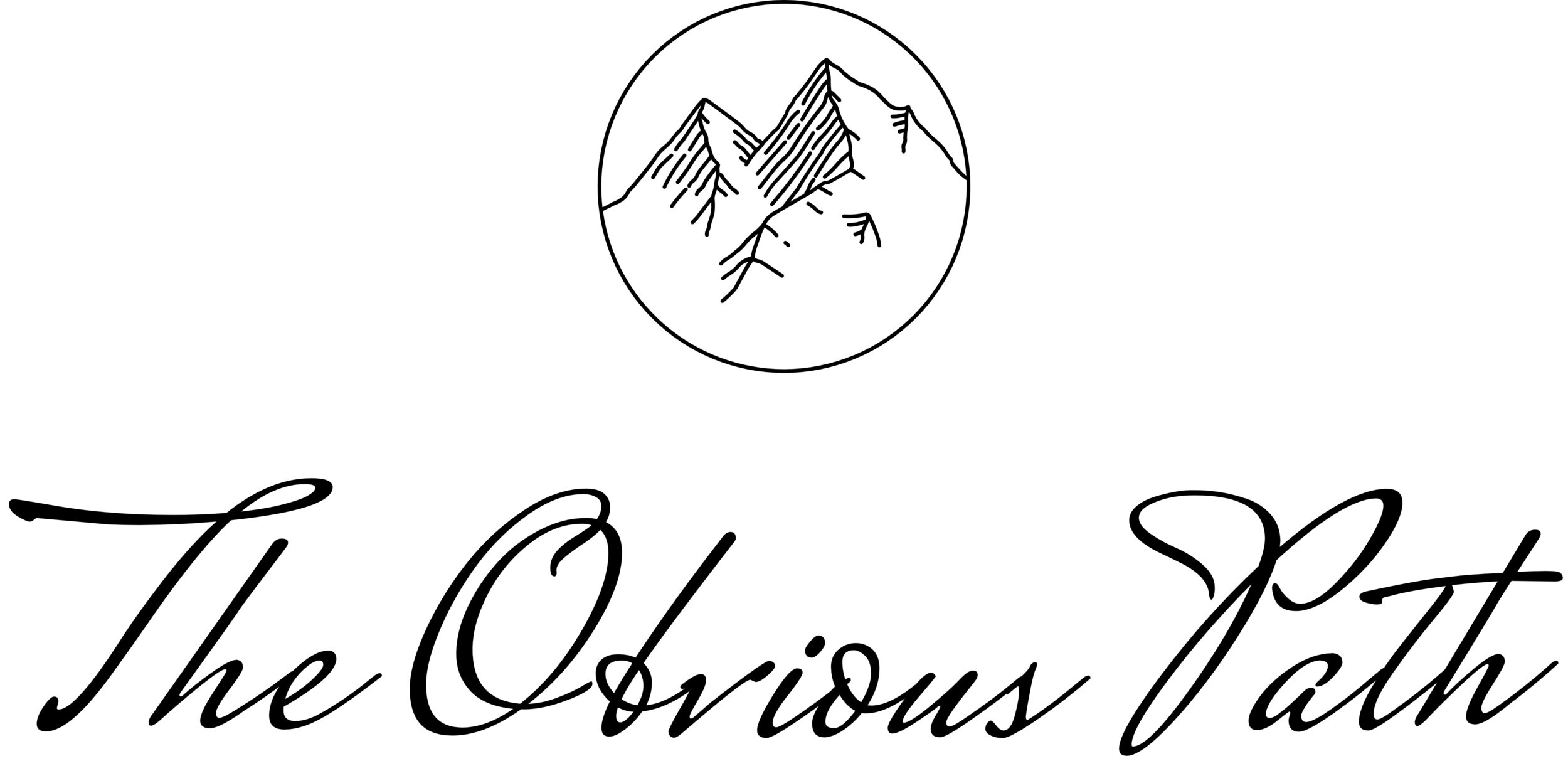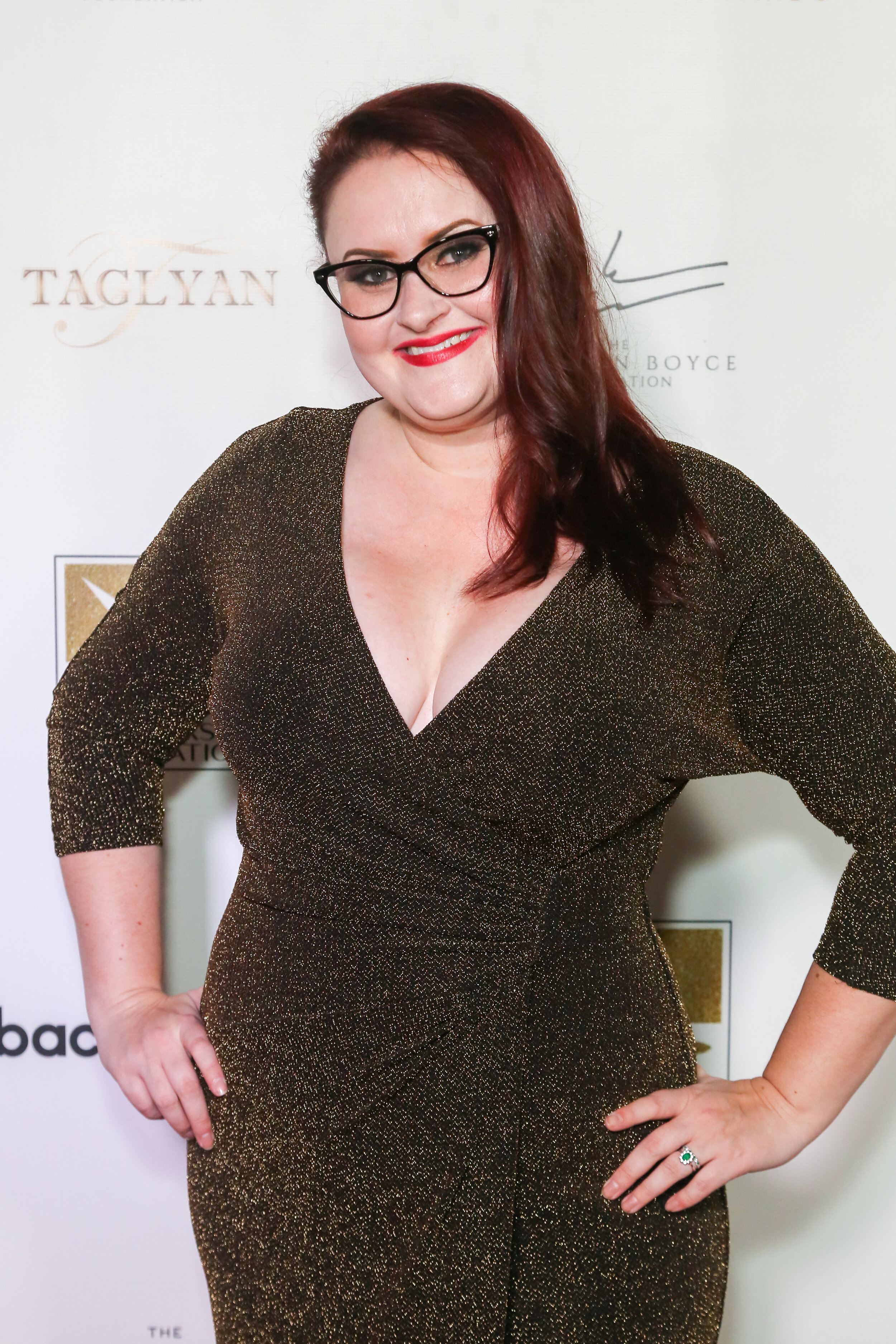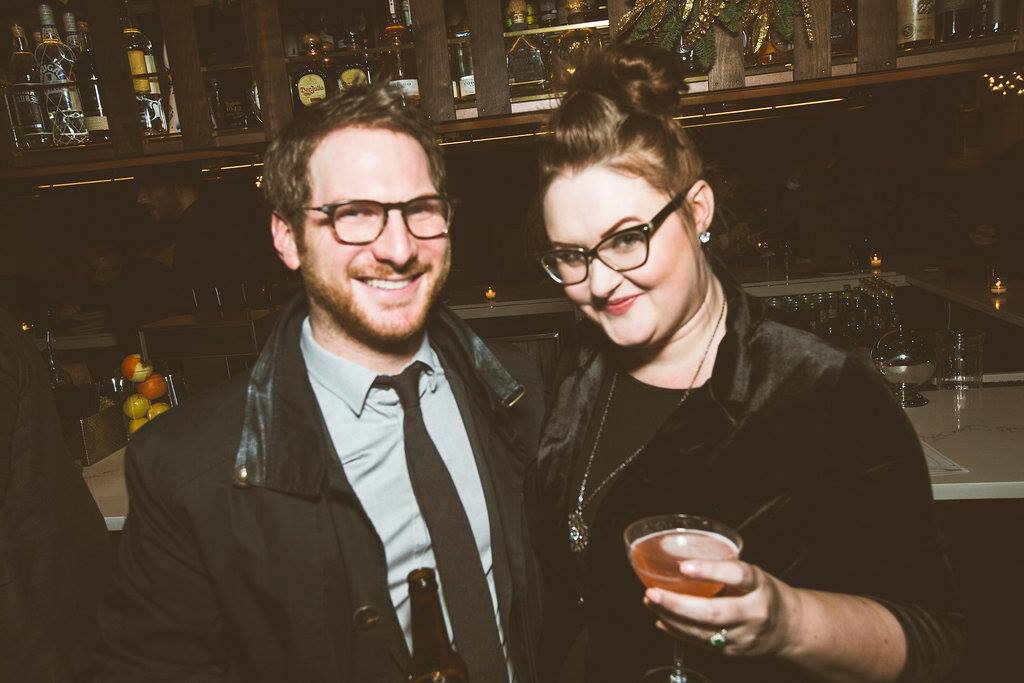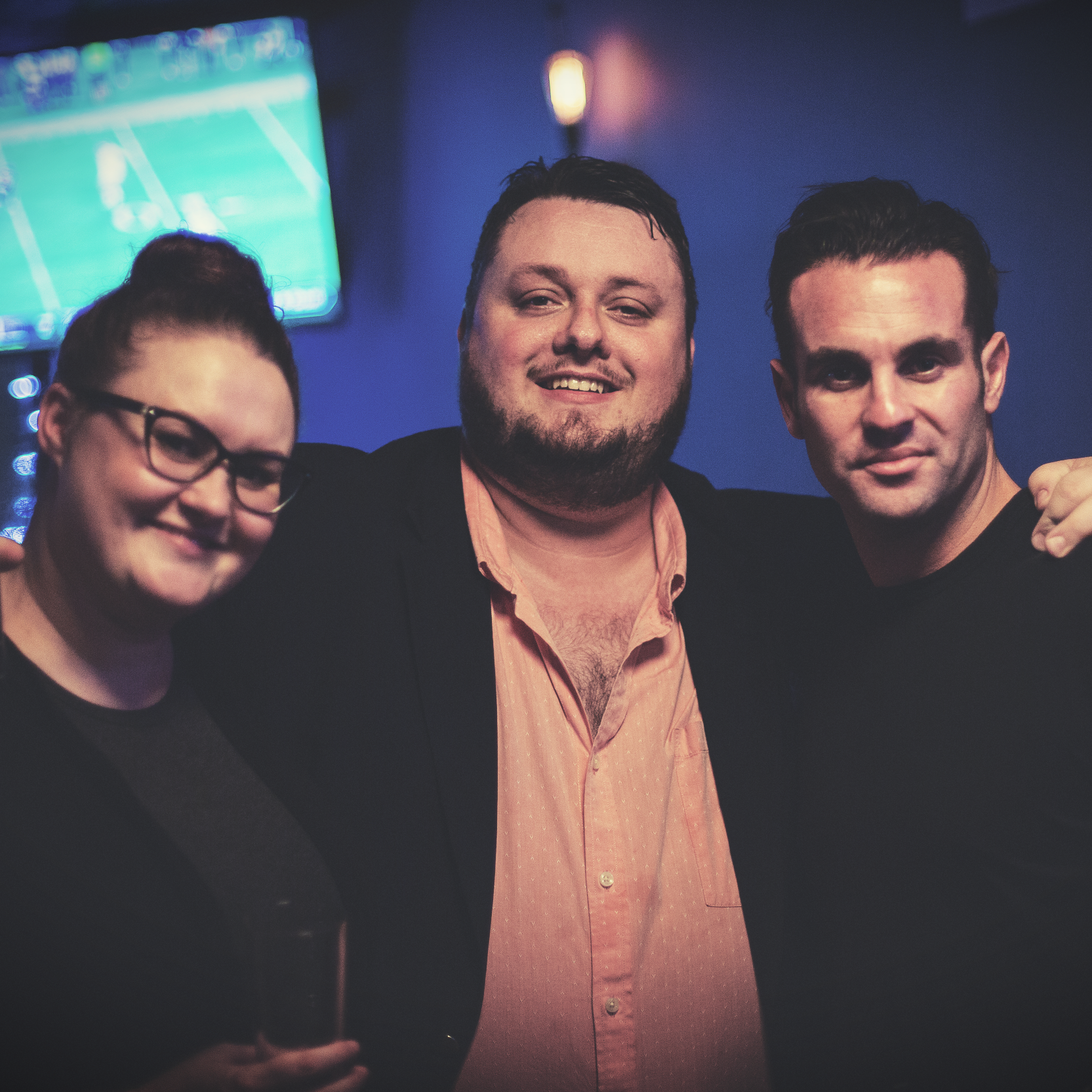Lori Kay, Prevail Artist Management
From Kat: I met Lori through a mutual friend who said I, quote, ”HAD to meet Lori”. A chips, salsa, and margarita date later and it was confirmed: Lori was someone I loved being around. (Side note: chips, salsa, and margaritas are always a good formula for success.)
During our time together, Lori and I chatted about life, the industry, and her journey of creating her own business. She is someone who is easy to talk to, passionate about her clients, and interested in making real change in the industry. Sounds like the ideal manager, right? She’s someone I’ve loved getting to know and loved getting inspired by. I hope she does the same for you. So I’ll turn it over to my margarita buddy, Lori Kay.
Lori! We are thrilled to have you be apart of our Manager and Agent portion of our blog. Would you briefly introduce yourself to our readers?
I’m thrilled that you asked! My name is Lori Kay, and I’m the founder and principal manager at Prevail Artist Management (celebrating five years this February). I currently serve as New York Director-at-Large for the Talent Managers Association, I’m a producer for The Heller Awards in Los Angeles, and I’m a member of the Television Academy, the Hollywood Radio & Television Society and New York Women in Film & Television.
You went to Western Illinois University. Can you tell us how you ended up there and how it impacted your career?
I transferred to WIU on full scholarship in August 2009 and graduated as an honors student with my BA in Acting with a minor in Music Business in December 2011. I was originally accepted as a Musical Theatre major, but a knee injury complicated things about a year in, so I switched my emphasis. I had my Associate of Arts in General Studies from College of Southern Nevada prior to that, but didn’t go further with my formal education as quickly as some do because I was busy working (between CSN and WIU I trained primarily with Joseph Bernard, Chris Bearde and The Second City while working full-time as a performer). Western was really great for me because going to school in Macomb forced me to focus on my education and my craft - something I wouldn’t have been able to do if I had stayed in Vegas.
What led you to becoming a Manager? You were a successful actress prior to this as well! Can you walk us through making that transition? What were the things you did in the first year to help you start out?
I began working as an actress when I was four years old - that’s when I shot my first commercial in California. I was also a strong vocalist, so I worked mostly on stage both through school and professionally, and I was very fortunate that my parents were supportive of me as a performer; they worked in various tech capacities as well, so I was exposed early on to a well-rounded view of the industry. When I wasn’t on stage, I was cutting gels and moving speaker cases and running follow spots for concerts and trade shows and such. As I got into my teens, I also started dabbling in writing and directing. I graduated high school early and at that point was already working professionally, mostly in Vegas - in 2005 I was listed as one of the “Top 10 Best Things in Stage” by the Las Vegas Weekly. Things were going well for me, but shortly after I moved to New York (which was never really my plan, it just sorta happened) I had some things happen in my personal life that affected my perspective of what I wanted to do. It’s hard to explain, but I chose to tap out. I knew I still loved the industry, but I wasn’t in love with a lot of what went along with being a performer anymore. I experimented with working in other fields, and though I excelled I wasn’t as passionate about those paths as I was about entertainment, so I decided I needed to find a different facet that I could apply my skill set to successfully. After a lot of soul searching, conversations and research, I landed in management.
A lot of that first year was figuring out the foundation of how I wanted to handle my clients, introducing myself to people in the industry who didn’t know me yet, taking in content so I knew what the market looked like, reading the trades to get to know the players through a new lense and developing relationships with people I could access on a level that allowed me to. I would sit down for coffee with anyone who would talk to me about their perspective, their approach - casting directors, agents, other managers, creatives. I read every indie script I could get my hands on and saw every play I could because those were the parts of the market I could get to at that first stage. It was basically about hitting the books, hitting the pavement and knocking on doors - all things I still do today. Everyone in our business has to go through their paces and train up, it just takes different forms as your career evolves. Everyone is constantly developing and engaging new skills, absorbing new content - that’s part of what makes this all so interesting to be part of.
Was there ever a moment where you questioned this career path? If so, how did you get through that time?
The beginning was certainly hard for me - people usually assume it had something to do with struggling with my transition out of performance or something, but no. I actually find my 20+ years experience and training in that arena to be a major asset because it helps me understand the drive and artistic sentiments of my clients and informs my ability to have meaningful conversations with creatives about their projects - but mostly because it took quite some time for me to be taken seriously by my peers. There are a lot of interesting opinions out there about managers, and everyone loves to share them with you when they find out you are one (hahaha), which I didn’t really expect at the beginning. I understand where a lot of it comes from, but it was pretty wild at first because I had no idea there was so much negativity thrown at this profession I chose - I would read about the Bernie Brillsteins and the Shep Gordons and be enamored by the multi-faceted nature of the role and how it evolves over time, so I guess I was a little naive to that outside perspective of managers until I was in the middle of it. To this day I still run into those opinions pretty regularly in one shade or another (especially being a boutique manager), but I’ve developed some really great relationships over the past few years who are incredibly supportive of me and what I’m trying to build, and that’s worth its weight in gold.
You do a lot of producing as well. Can you talk us through getting started with that realm of the business?
Yeah! It’s a bit of a new frontier for me in a way, though I had a decent amount of hands on experience in my previous life but didn’t really realize that’s what I was doing - at that time we were just having fun making theater or building events or shows or what have you, so we figured it out as we went. Now I’ve started slowly working in film, which is a horse of a different color. I’m still learning the ropes of where I’m most useful on that side of things, but my current projects usually have me either finding and developing material that I think is interesting or has something to say and connecting those ideas with great people who can help shape it or by being boots on the ground dealing with the day-to-day needs of and admin affecting the talent directly (because those are the roles that closely match my existing skill set). The more I’m on set, the more I’m in a position to learn new things - and that challenge is a big part of why I love it. It’s also a pretty incredible thing to help support creatives you respect in realizing a story they want to tell while also creating opportunities for your clients. There’s a lot of reasons why producing is a real good time and I’m very lucky I get to do it on occasion.
At the onset of your career, what was the definition of success you were aspiring to achieve? Now, where you are at, how do you describe your success?
It’s weird - I feel like the only time I defined success for myself as a performer was when I told my high school yearbook that my goal was to make a living as a performer. And then I did. Hahaha. I’ve really just focused on whatever was directly in front of me when it came to my own career, and that has suited me well because I’m good at adapting. Now that I’m in management, I do tend to set more strategic goals or contemplate bigger picture concepts for myself because that’s the nature of what I do - I spend much of my time switching back and forth between checking on the forest and focusing on the trees when it comes to my clients, so I try to use a similar approach with my own career.
In terms of saying my new personal career goals in print for a bunch of people to read kinda scares the crap out of me because I’m afraid I’ll jinx it - haha - but I do tend to set annual goals for myself and for my company. “This year I want to accomplish this...check, check, check.” That way you’re building things slowly instead of getting ahead of yourself and you’ll hopefully have the opportunity to enjoy some of your successes as they come. A couple of the current goals I will generalize out loud is that I would love to find more opportunities to give back to the community in a meaningful way and I would love to develop more opportunities to teach. I can usually only do it a few times a year because of the demands on my schedule, but I really enjoy talking to college performance departments about the business of “The Business” - I feel like it’s incredibly beneficial for graduates to leave their programs with at least a general sense of how to navigate the professional world after they graduate and I love being part of that process.
What’s something you wish you had done or wish you had known earlier?
I don’t know that I have anything I wish I’d done. There’s probably something but I try not to dwell on that stuff too often - it doesn’t help me. I do wish I had been better about trusting my instincts and welcoming the word “No” into my vocabulary at an earlier stage of my career. Not everyone is going to like you all the time, so go ahead and stand up for yourself - that’s another one. Yes, of course it’s smart to pick your battles, and there’s a way to do it respectfully, but if you decide something is genuinely worth fighting for or about, there’s most likely a damn good reason. Trust yourself - instincts and passion are what tend to make people great at what they do.
Where are you on your mountain?
Always climbing. Mountains are big and that’s kinda the point - if you’ve reached the top too quickly, you probably picked a hill and should take some time to re-evaluate before you get bored. Pivot. Expand your horizons.
RAPID FIRE!
Favorite Broadway show of all time: Tie - Assassins (Revival), Hedwig and the Angry Inch, Hamilton, Next to Normal.
TV show that you love: You’re killing me, I watch way too much TV because I love it. Seriously - cable, steaming, network - so much TV. Here are just a few I've watched most recently and love..."The Morning Show," "Succession," "The Marvelous Mrs. Maisel," "You," "The Righteous Gemstones," "Shameless," Letterkenny," "Fleabag," "Schitt's Creek," "Veep," "Black/Grown/Mixed-ish"...I could literally do this all day. I also love basically all things Ryan Murphy and all things Aaron Sorkin - I just barreled through "The West Wing" and I'll probably do it again in a year because it's just so damn good.
Favorite music on your commute: I’m still a musician at heart so I rotate through a LOT of music. Currently I’m listening to The Raconteurs, Flogging Molly, Gin Wigmore, Kings of Leon and Mickey Avalon. LOL. I also love Cardi B and Lizzo but I don’t have any of their stuff on my phone yet. Sad face.
Any other obsessions?: In no particular order - Movies/documentaries; Andy Warhol; my cats; good food (who doesn’t?); traveling (though I don’t get to do nearly as much as I’d like); and reading autobiographies/biographies about actors, especially silver screen starlets, and the business - I’m currently reading Joan Crawford’s My Way of Life and it’s a HOOT.
Social media is ________: Not going anywhere. Also, perception is reality.
Religious, Spiritual, or nah?: Spiritual? Though when I say it like that I feel like I should be drinking kombucha in a sun ray while wearing ironic glasses and looking thoughtful. (I’m not.)
Actor-ism that frustrates you: Lack of commitment and lack of drive - invest in yourself because if you don’t you can’t expect other people to. Also, shadiness or rudeness. I can’t want it more than you, and if I’m going to work as hard for you as I do, treat me with respect.
Call or Email?: Email, mostly because it’s easier to pull up details later when I need to backtrack and also because my days are super full so an unexpected long phone call can throw my schedule off hard. If you need to discuss something deep, email to set a call and we’ll set it (unless it’s an emergency, of course). Good news is also obviously fine...call away with that! :-)
Biggest beef with the business: I know we’re in a competitive business, but we’re also in a small business...so when people are rude or short right off the bat it friggin’ kills me. It doesn’t impress me, and it doesn’t make me respect you more. I don’t care who you are - every day kindness is important and applies to everyone. That also includes if I see anyone being snotty to an assistant or intern or PA or monitor. That’s a big nope in my book, and I will remember it - it says a lot more about you than it does about them, trust.
Favorite part about being a Manager? Sharing in my client’s successes and watching their careers develop - it’s incredibly rewarding to watch someone grow into their potential.
Hardest part of being a Manager?: When you know what someone’s capable of but they fight it or give up - I think that’s worse than when you help clear the path and they burn you. And when I say give up, I don’t mean they leave the business - making the decision to follow a different path is completely respectable and can be incredibly rewarding and fulfilling for that person. Do you. By giving up, I mean those who won’t let go but also won’t put the work in. That’s what giving up looks like to me - it’s like putting yourself in purgatory.
I get inspired when _______: When the team is on the same page and everyone is working hard and things are moving forward - that day-to-day cohesiveness, that synergy, is incredibly inspiring. Luckily for me the agents and clients I work with bring a lot to the table so they keep me pretty inspired. Otherwise, why do this?
Photos:
Heller Awards, 2019
TMANY Holiday Party 2019 Ben Jordan/Michael Bloom
TMANY Holiday Party 2017, with Marc Shaer



